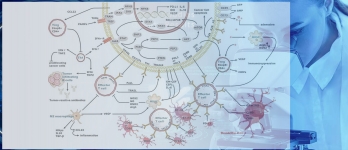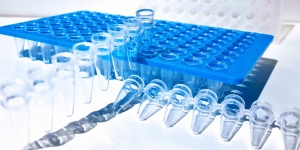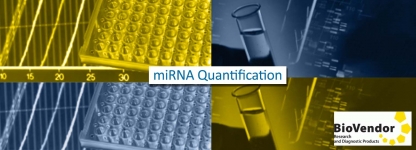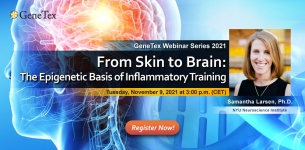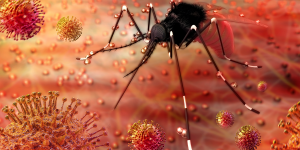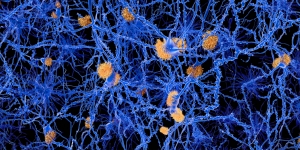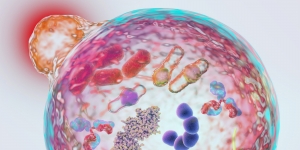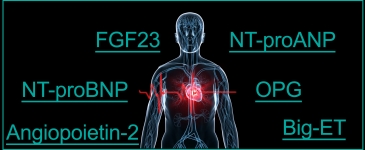Immune Checkpoint Markers Outstanding PD-L1 Antibody for your Research
Increasing knowledge of how cancer cells escape immune destruction has significantly driven the evolution of cancer immunotherapy. In particular, studies describing how different immune checkpoints, including the PD-1 and CTLA-4 pathways, function to attenuate T cell antitumor activity have revealed novel opportunities for therapeutic intervention. Researchers have made promising strides in inhibiting these checkpoints to unleash the T cells’ tumor-killing potential. Given that both radiotherapy and chemotherapy can also mobilize antitumor T cel...
Coated PCR-Tubes for DNA-assisted immunoassays
Newest epitope detection methods as immuno PCR assays, or DNA-assisted immunoassays combine the high specifity of antibody binding with the enormous amplification capacity of the polymerase chain reaction (PCR). Affinity probes with conjugated amplifiable oligonucleotides allow proteins to be detected at the level of single molecules or molecule complexes. Togeth...
Anatrace Lipids Fos-Choline® detergents
Lipids are commonly used by researchers to stabilize membrane proteins. However, the common challenge with working with lipids is their high cost and lack of solubility in water. Anatrace® scientists answered the challenge and developed innovative Anatrace Fos-Choline® detergents, with the stabilizing properties of lipids, combined with the characteristics of a water-solub...
CRISPR-based diagnostics SignalChem Webinar and Product Launch
CRISPR/Cas9 is a popular genome editing tool, due to its simplicity and versatility, which allows for highly specific genomic modification and targeted gene silencing. CRISPR-based diagnostics has become a relevant technology for fast, affordable and ultra-sensitive testing at home, point of care or in the field. We want to invite you to our partner SignalChem's webinar on the topic of CRISPR-based diagnostics.
miRNA Quantification Learn about BioVendors miRNA Quantification
The incredible regulatory power of microRNAs (miRNAs) and other short non-coding RNA sequences (sncRNA) was discovered very recently. Research into these highly abundant RNAs revealed their crucial involvement in orchestration of all molecular signalling pathways (p53, Wnt, FAS and others) and their potential as a biomarker. The ability of miRNAs to immediately respond to path...
GeneTex Webinar The Epigenetic Basis of Inflammatory Training
Join our partner GeneTex' upcoming webinar on inflammatory training and tissue repair. Inflammatory training is the generation of an epigenetic memory that leads to an augmented state of responsiveness to a broad range of secondary stimuli. Though previously thought to be exclusive to the innate immune system, Dr. Samantha Larsen discovered that epithelial stem cells can undergo inflammatory training that accelerates tissue repair. She revealed this phenomenon hinges on the coordinated efforts of stimulus-specific, stress-responsive, and...
RNA Viruses Viral protein antibodies
Viral epidemics are one of the greatest challenges of our time. The causative agents of most viral infectious diseases that have occurred in recent decades are RNA viruses. In addition to SARS-CoV-2, these include influenza viruses, Ebola virus, poliovirus, Zika and dengue virus, among others. R...
Amytracker Amyloid visualization
One of the main features of Alzheimer's disease is the formation of senile plaques by extracellular deposits of beta-amyloid and intracellular fibrillar deposits in the gray matter of the brain. These are usually detected by light microscopy after silver staining or by immunofluorescence. Amytracker from our partner
Autophagy Research Gold standard Anti-LC3 from MBL
Autophagy refers to the process of degradation and utilization of own cellular components such as misfolded proteins or organelles by eukaryotic cells. Autophagy in mammals is involved not only in the starvation response, but also in antigen presentation, cell death, development, aging, tumorigenesis, and defense against bacterial infections. Autophagy research is therefore important for understanding all these processes. LC3 has been studied extensively and is used as an autophagy marker in mammals. So...
Cardiovascular Biomarkers ELISA Kits for clinical research
Cardiovascular diseases are the most common cause of death worldwide and in Germany. However, if diagnosed in time, these diseases can usually be treated well. With our partners' high-quality ELISA kits for biomarker detection, we support your preclinical and clinical research on cardiovascular diseases. FGF23: Novel Risk Marker of Heart Failure...


